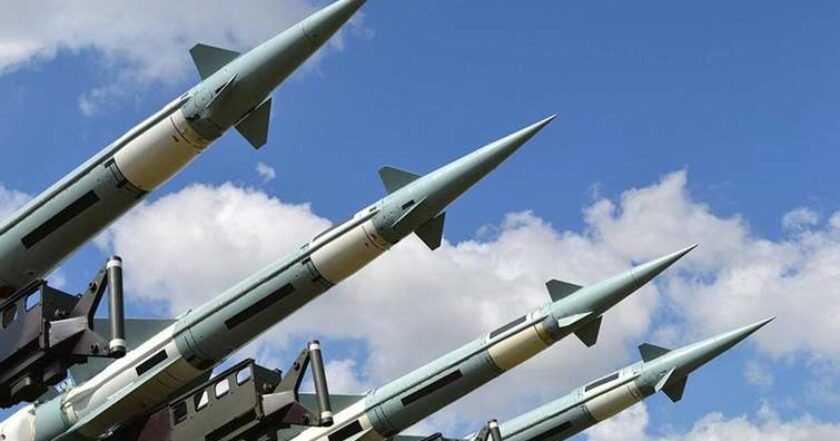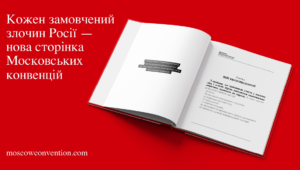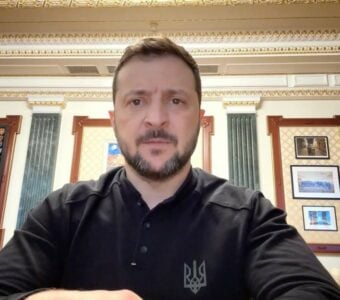Kremlin shifts strategies in nuclear intimidation of Western nations – ISW

Photo: open sources
Moscow is currently reassessing the effectiveness of its "nuclear saber-rattling" strategy to influence the ongoing political debate in Western countries over whether to allow Ukraine's armed forces to target military facilities in Russia with Western weaponry.
The Institute for the Study of War (ISW) reported that.
According to analysts, an article in The Washington Post reports that Russian leader Vladimir Putin has realized that his nuclear threats against Western officials are no longer effective.
In this regard, the dictator is likely crafting a vague and nuanced response to the West's potential approval of Ukraine's use of long-range weapons to strike targets in Russian territory.
According to an unnamed Russian official quoted in the publication, Moscow realized that nuclear threats "do not scare anyone." The Russian academician, who has close ties with high-ranking Russian diplomats, noted that Russia's partners in the "Global South" are very dissatisfied with nuclear threats.
The report notes that the Institute for the Study of War cannot independently verify the veracity of the Washington Post's sources. However, the messages are consistent with ISW's differing assessments of how the Kremlin is using "nuclear saber-rattling" to deter the West and that such messages do not indicate Russia's readiness to use nuclear weapons.
"The Kremlin's thinly veiled threats of nuclear confrontation are aimed at disrupting and delaying key decision points in Western political discussions about further military assistance to Ukraine. ISW continues to assess that Russia is very unlikely to use nuclear weapons in Ukraine or elsewhere," the report reads.
ISW key findings as of September 22:
- Ukraine's September 18 strike against a Russian missile and ammunition storage facility near Toropets, Tver region, reportedly destroyed enough Russian munitions to affect Russian operations in the coming months.
- The Kremlin is reportedly reconsidering the effectiveness of nuclear saber-rattling as part of its efforts to influence the ongoing Western policy debate about supporting Ukraine and specifically permitting Ukraine to use Western-provided weapons against military objects in Russia.
- Satellite imagery of damage at the Plesetsk Cosmodrome in the Arkhangelsk region captured on September 21 suggests that the Russian military recently conducted an unsuccessful RS-28 "Sarmat" nuclear-capable intercontinental ballistic missile (ICBM) test.
- Ukrainian Defense Minister Rustem Umerov stated on September 21 that Ukraine will increase its production of drones by "several times" in 2025 to maintain Ukraine's quantitative superiority over Russian drone production.
- Russian Ministry of Foreign Affairs (MFA) Spokesperson Maria Zakharova announced on September 22 that Russia will not participate in Ukraine's second peace summit later in 2024 or in any "such summits."
- Russia is reportedly expanding intelligence operations in Mexico to undermine the United States and support for Ukraine.
- Ukrainian forces recently advanced near Svatove.
- Russian forces recently marginally advanced near Toretsk and Pokrovsk, southwest of Donetsk City, and in the Donetsk-Zaporizhzhia region border area.
- A Ukrainian officer in a drone crew stated on September 22 that the Russian military command is forcing soldiers to dig trenches at Russian positions in unspecified areas of Ukraine without weapons and sometimes without armor, helmets, or military uniforms.
For reference:
It was previously reported that on May 6, Putin threatened the West with Russia's "technical readiness" to start a nuclear war.
According to Andrii Yusov, a spokesperson for Ukraine's intelligence agency, Russia's plans to hold training on tactical nuclear weapons demonstrate a consistent pattern of nuclear intimidation under the Putin regime.
It is worth mentioning that in March of last year, Russian leader Vladimir Putin declared that he and self-proclaimed Belarusian president Alexander Lukashenko had reached an agreement to station tactical nuclear weapons in Belarus. Additionally, the Kremlin leader discussed the possibility of transferring the Iskander missile system, capable of carrying nuclear arms, to the Belarusian military.
Already on May 25, Lukashenko announced the beginning of the transfer of Russian nuclear weapons to Belarus. Neither Western countries nor Belarusian monitoring channels confirmed such information.
A month later, CNN, citing unnamed representatives of American intelligence, reported that the United States had no doubts about moving the first batch of Russian nuclear weapons to Belarus.






















































